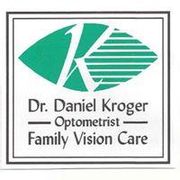
Colorblindness refers to the inability to see certain hues. In rare cases, it’s the inability to distinguish among all colors. Often a genetic condition, it also occurs because of ocular diseases, retina damage, and aging. Take a moment to learn some interesting facts about this condition before scheduling your next eye care exam.
Fascinating Information About Colorblindness
1. Colored Contact Lenses or Glasses Can Improve the Condition
It’s impossible to cure this sight issue; however, people can improve the condition by wearing color-correcting contact lenses or glasses. Since some jobs require color vision tests, corrective lenses or glasses might provide career assistance. Visit an eye care provider to see if they can help with your colorblindness.
2. Red-Green Colorblindness Is the Most Prevalent
Red-green colorblindness, or deuteranopia, is the most common form of the condition. It makes it challenging to distinguish among red and green hues, although other colors, such as gray and purple, might also be difficult to see.
3. Most Animals Are Colorblind
 The majority of the animal population is colorblind and only sees limited hues, including cats, dogs, and rabbits. Surprisingly, other species, such as butterflies and bees, see a broader spectrum than humans.
The majority of the animal population is colorblind and only sees limited hues, including cats, dogs, and rabbits. Surprisingly, other species, such as butterflies and bees, see a broader spectrum than humans.
4. It Affects Men More
The eye condition affects more men than women; for example, about 8% of men have the red-green condition, compared to 0.5% of women. However, while men cannot pass on red-green colorblindness to their sons, if a woman has it, her sons will too.
5. Some People Are Colorblind in One Eye Only
Some people have unilateral dichromacy, where they are colorblind in one eye only. However, much like complete colorblindness, this condition is rare.
Daniel J. Kroger OD provides residents throughout the West Chester, OH, area with a full suite of eye care services, including exams, contact lenses for colorblindness, eyeglasses, and treatment for ocular diseases. Dr. Kroger and his friendly team offer affordable and effective solutions, including the latest multifocal lenses and tints. Call (513) 777-3936 to schedule your next eye care appointment, or visit the optometrist online for more information on their services.
About the Business
Have a question? Ask the experts!
Send your question

